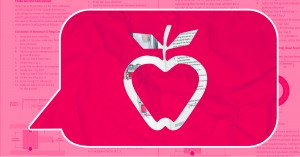We anticipate that 2022 will prove to be another challenging year for the rubber industry. Among the obstacles we’ll need to overcome are labor shortages, supply chain disruptions, and pricing pressures. Additionally, many rubber polymers are still on allocation indefinitely. It will be more important than ever to have a reliable sealing solution manufacturer and supplier like Apple Rubber to help your business navigate the uncertainties of 2022. While these issues will be impossible to avoid entirely, Apple Rubber is dedicated to being transparent about challenges in the industry and acting as a resource for our clients to the best of our ability.
COVID Labor Shortages
Workforce and labor shortages are an ongoing problem for many manufacturers. Finding qualified applicants was hard enough before the pandemic. Now, keeping everyone in the workplace healthy makes things even harder. Since this is an issue across the rubber industry’s supply chain, we can anticipate higher lead times and potential order cancellations as a result.
Let’s look at the supply chain of a typical rubber part. A base polymer is made up of many components, each of which must be ordered and shipped. Next, you have fillers, additives, and processing aids. All these ingredients need to be shipped to a mixer for blending. Once mixed, this compound is then sent to molders to be pre-formed and molded into their final forms. Each of these steps can take place in different geographical locations. If any of these regions has a high infection rate, a single workforce shortage could impact multiple parts of the manufacturing process.
Inflation
The consumer price index rose 7% in December, driving all costs associated with the manufacturing of rubber products. Oil is currently pricing at $90/barrel. Since many rubber compounds are derived from oil, these high prices put pressure on rubber cost. Unsurprisingly, we are still seeing high shipping costs as well. As a result, some of this cost will unfortunately pass along to rubber industry customers.
Polymer Allocations
Currently, FKM, Silicone, and Fluorosilicone compound allocations are still in place. With the increased demand for alternative energy and EV cars, supply pressure on FKM and silicone polymers will likely continue. Fluorine gas is one of the main components used in EV battery technology, and the demand for Fluorine gas creates competing pressure on FKM manufacturing. Solar panel production also uses siloxanes, the main ingredient in HC and LSR silicones. Those of us in the industry can look forward to new siloxane plants coming online, which should alleviate much of the pressure from allocations that we’re currently dealing with.
As always, you should aim to work with rubber suppliers who have a good forecast on supply chain problems and have their material ordered for months ahead of time. We at Apple Rubber try to have higher safety stock levels to help with potential temporary shutdowns or supply disruptions. In addition, we are still holding some material for new prototype jobs, so our current customers can still get parts in development for future productions. Despite the challenges that 2022 will bring, we are dedicated to helping our customers through the next year with as few headaches as possible.
Looking for more information?
Contact Apple Rubber and we’ll see how we can help out.
